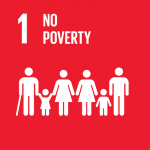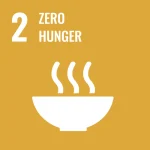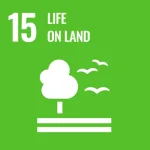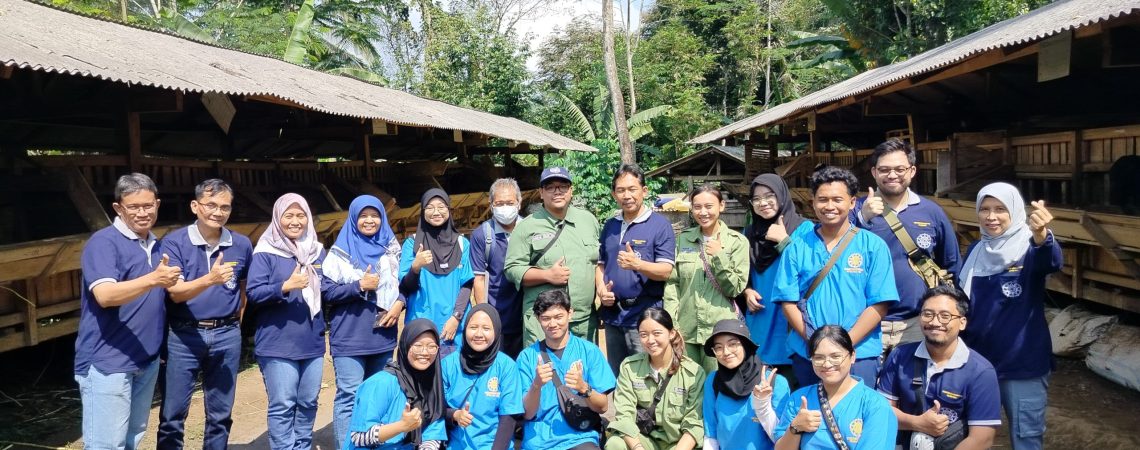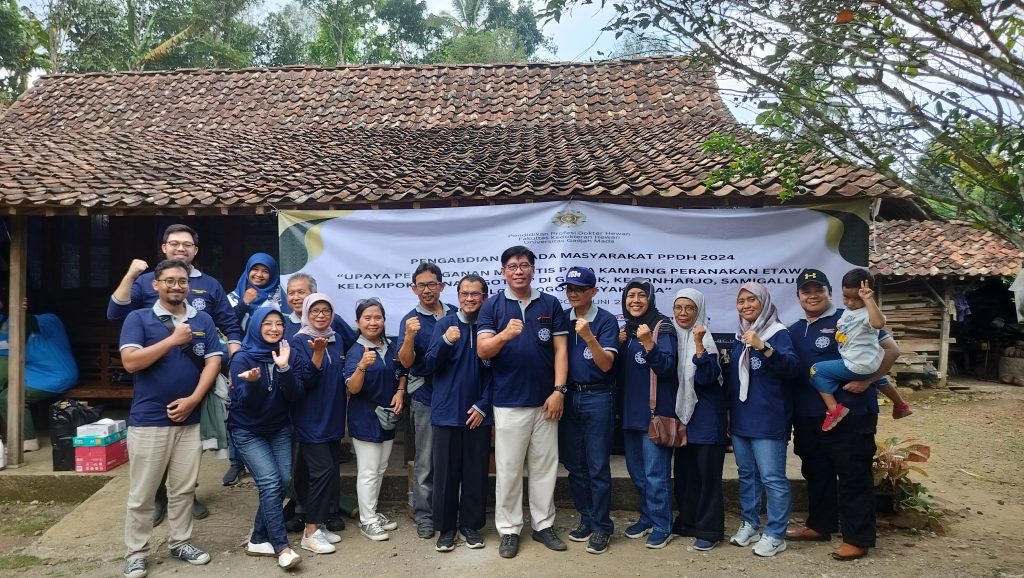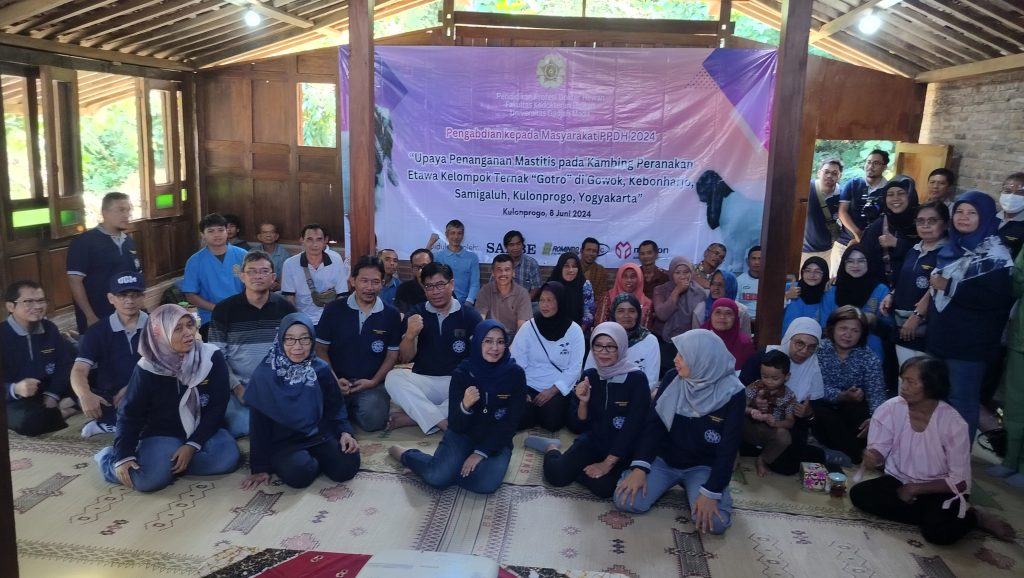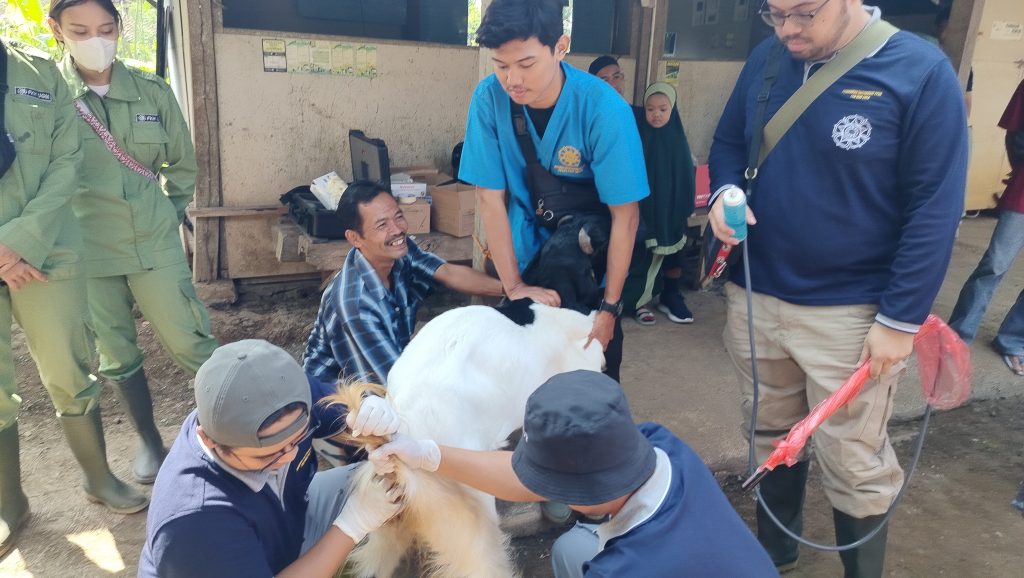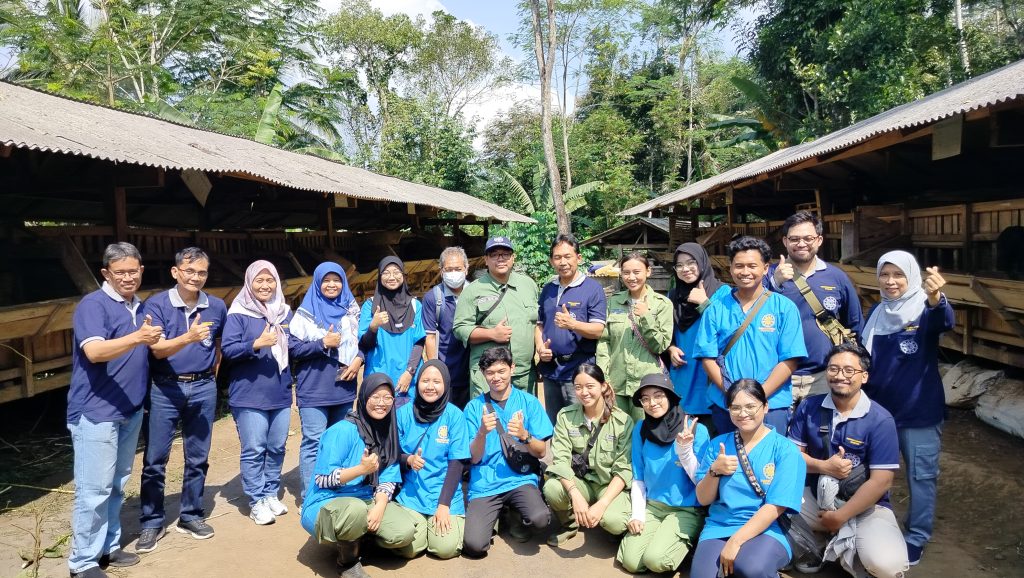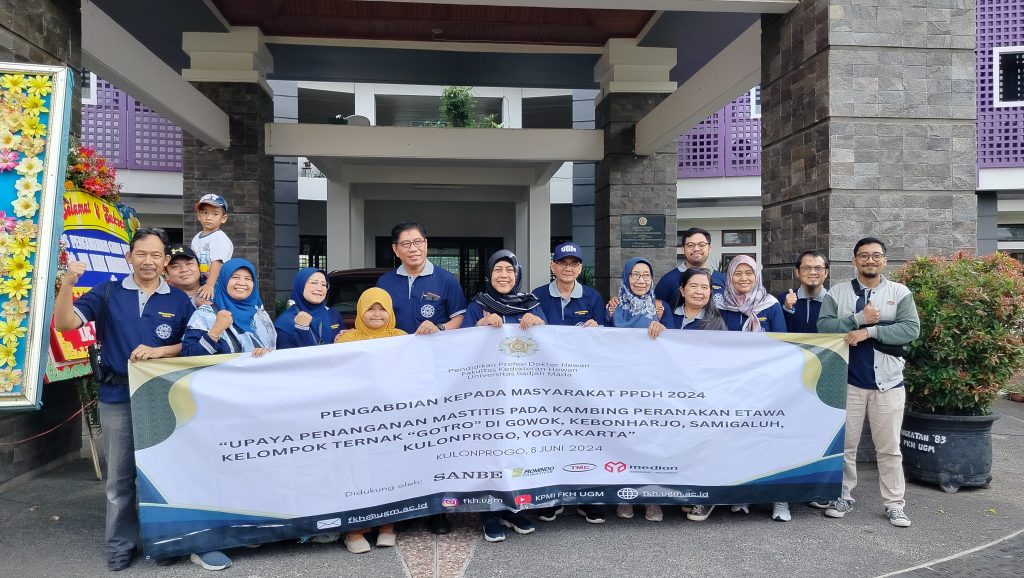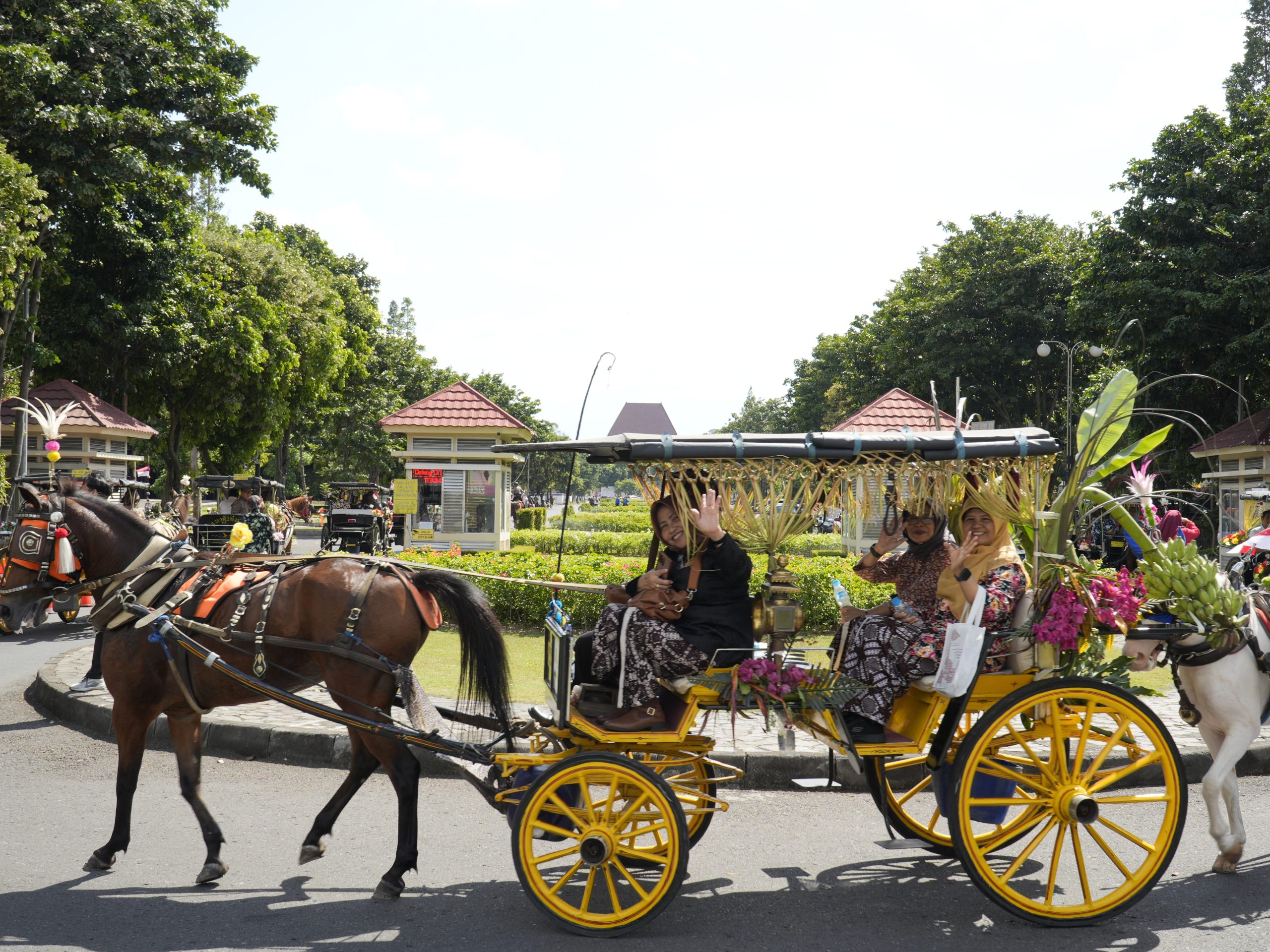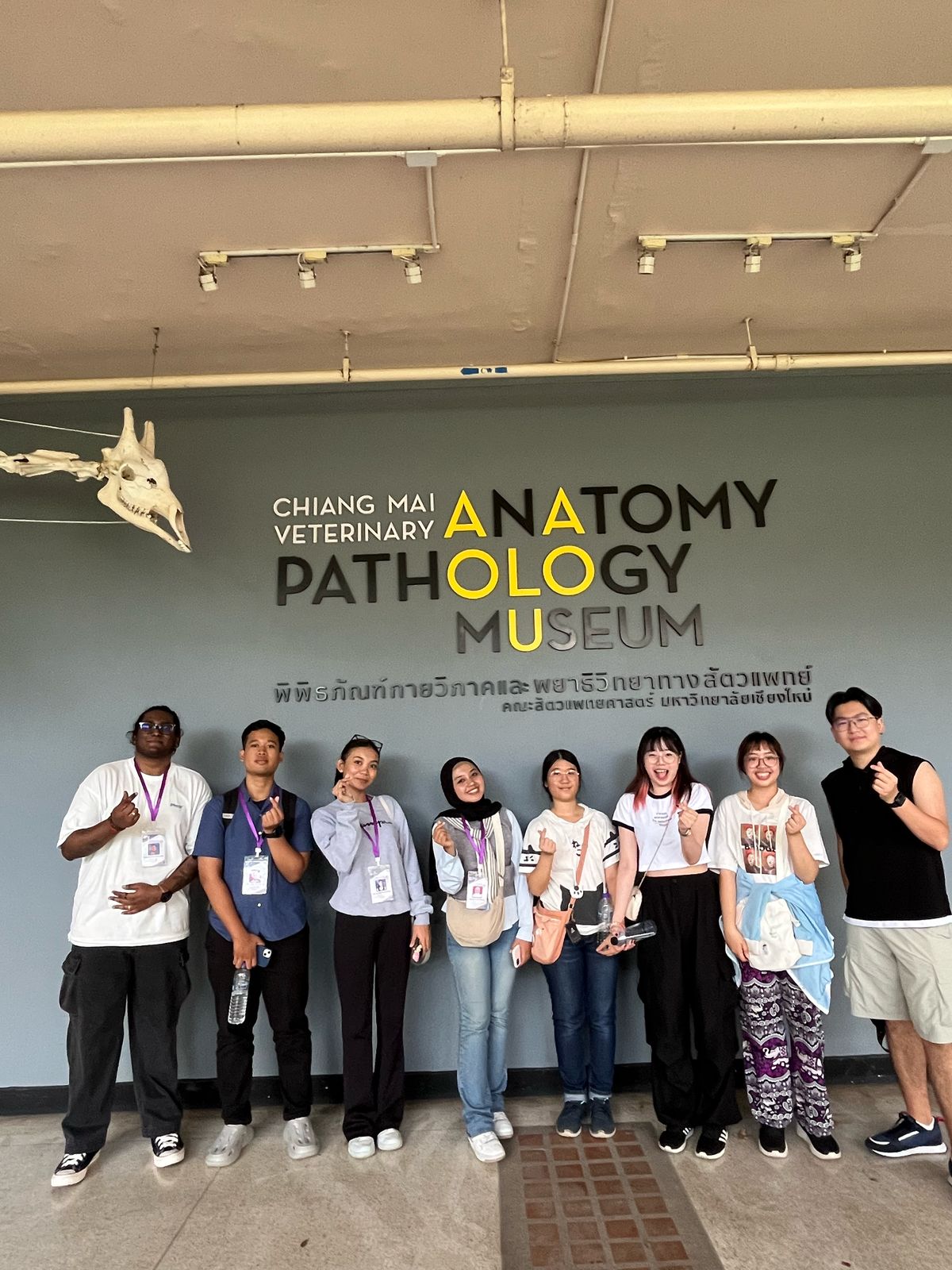Saturday, June 8, 2024. Veterinarian Profesion Education Study Program, Faculty of Veterinary Medicine (PPDH FKH) UGM conducted Community Service on Goat Livestock Maintenance in Kebonharjo Village, Samigaluh District, Kulonprogo. This community service revolves around educational material on handling Mastitis for Etawa crossbreed goat breeders in Samigaluh Kulonprogo. This activity reflects SDG 15, namely Life on Land.
Mastitis is a type of disease that attacks the goat’s mammary glands, causing swelling in the udder. As a result, the mother goat cannot provide milk for the kid. Meanwhile, the selling point of Etawa crossbreed goats is in the quality of their goat milk. Therefore, Mastitis disease can greatly affect milk production which has an impact on consumption and food security.
If not treated quickly and properly, this disease can affect the economic income of farmers. This disease sometimes forces farmers to sell their livestock at low prices and have to buy new livestock so that farmers experience losses. Once infected, of course it will increase the cost of goats care.
To help farmers overcome this disease, the Faculty of Veterinary Medicine UGM held a counseling on how to properly manage Etawa crossbred goats, including maintaining the cleanliness of the cage. This is an education for sustainability because it can mitigate bad things in the future, both in terms of food production and the economy. This activity is in accordance with SDG 4 quality education and SDG 2 zero hunger.
If carried out properly and routinely, the form of community service from PPDH FKH UGM can help alleviate poverty with empowered farmers and produce Etawa crossbred goat milk with the best quality and can be sold at a profitable price. This is in accordance with SDG 1 zero poverty.
